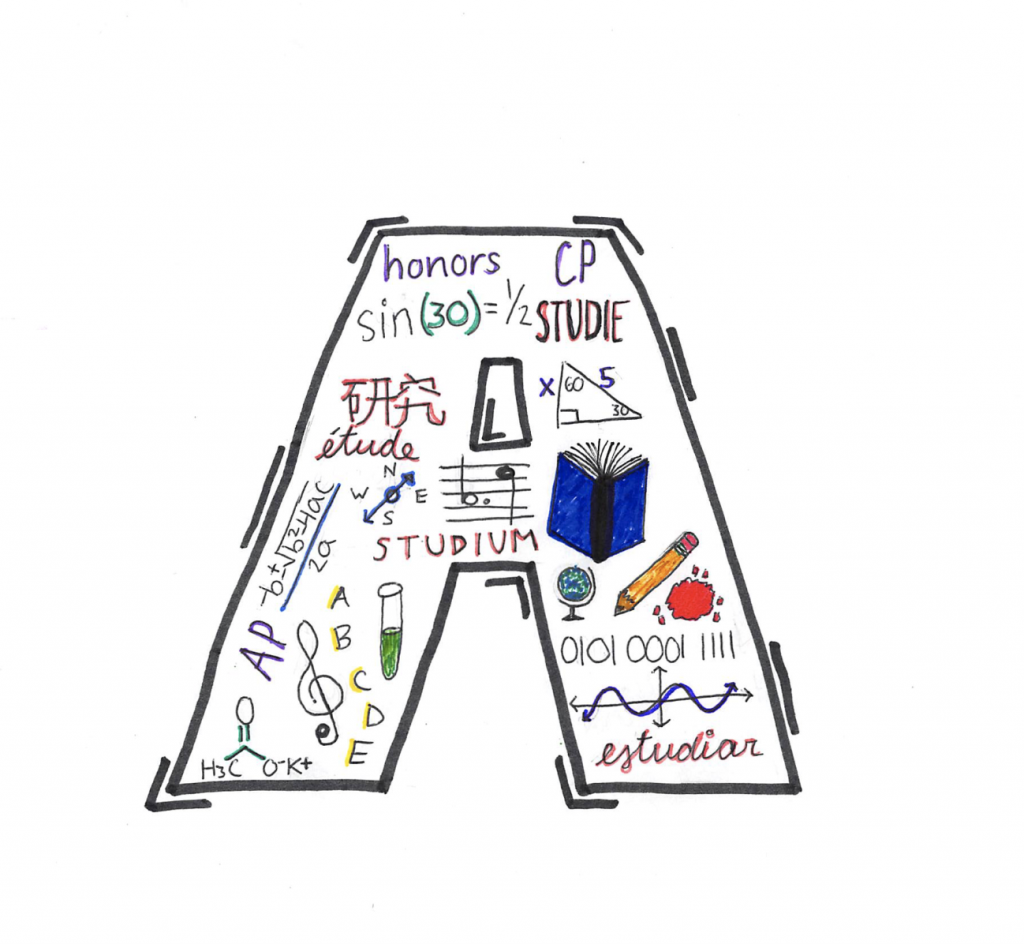Studying past midnight, overwhelming to-do lists, and a looming voice contemplating whether your academic efforts are “good enough” is a lifestyle that many RHS students have found themselves accustomed to. RHS is composed of a school of perfectionists. Whether or not a student is trying to be the fastest on the track team, the strongest debater in their class, or the best musician in their section, they all have one common goal: to be as close to “perfect” as they can.
So how has this school’s reputable “tradition of perfection” shaped the lives of our student body? One thing I can say for sure is that the high standards that a majority of students at RHS have set for themselves has shaped the environment of our school to be extremely competitive. The struggle for academic perfection in a school of perfectionists has turned into a battle for constant validation.
I think we can all sympathize with the experience of being asked what score you received right after being returned an assessment from fellow classmates. Everybody has their own standard for themselves, yet we always find ourselves looking to others to validate those standards and impose a sense of superiority (or inferiority) compared to our classmates. Being a good student has now gone beyond achieving personal academic means but the approval of others as well. You would think that confidential class ranks would prevent such a competitive academic environment, yet strive for academic perfection has more or less become a mere sport in some student’s minds, wanting to rise to the top and doing whatever it takes to bring others down.
I often wonder why the characterization for a student that has obtained academic “perfection” typically consists of a 4.0 GPA or 1500+ SAT score. These numbers are measuring the amount of money and resources that a student’s background consists of rather than actual intellectual level. If you have two students who are struggling in math, one of which is actively receiving paid tutoring after school twice a week and the other is having to go to work right after school because their family cannot sustain themselves without the combined income of their child, the student who is receiving tutoring has an advantage in securing a good grade.A student who goes to an SAT class every week and has purchased the college board book with numerous practice tests will more likely receive a higher score on the test in comparison to a student who is unable to afford a book or go to a class every week.
As much as we like to characterize the struggle for “perfection” as something only concerning students, colleges strive for the same thing in considering their applicants. It’s clear that attaining academic perfection in the eyes of a college is not something that everybody has an equal shot at. Your background and upbringing matter. However, if that’s the case, how come colleges try to promote themselves as a mediator, an institution that gives equal opportunity for anybody interested in further pursuing their academic career with them? The answer is simple: they don’t.
Universities are undeniably inconsistent with admitting those who are underprivileged, often times ignoring those with a lower socioeconomic status. More specifically, the point of affirmative action mostly benefiting black students is defeated when only a small number of them will be considered for admission due to the amount of the black population in America inevitably being segregated into areas that are not high in its socioeconomic status over the course of history. No matter how much universities consider underprivileged backgrounds of students in its admissions process, their mindset, which has been corrupted by elitism due to their everlasting need for academic perfection, will cause whoever they admit to be at the expense of somebody’s else’s admission due to previous disadvantageous circumstances.
As much as I believe that the struggle for academic perfection at RHS has become corrupted by unnecessary competition and strive for constant validation contributing to the elitist complex which universities quietly try to maintain, I do think it has brought some good. Students, now more than ever, will not settle for mediocrity when it comes to determining their life path, but rather with a career they are genuinely passionate about and have the ability to succeed in. If RHS students are taught principles such as self-compassion while maintaining our strive for excellence, I have great faith that the struggle for academic perfection will no longer be a struggle, but an endeavor.
Jade Dobson
Staff Writer
Graphic: Tess Cundiff

